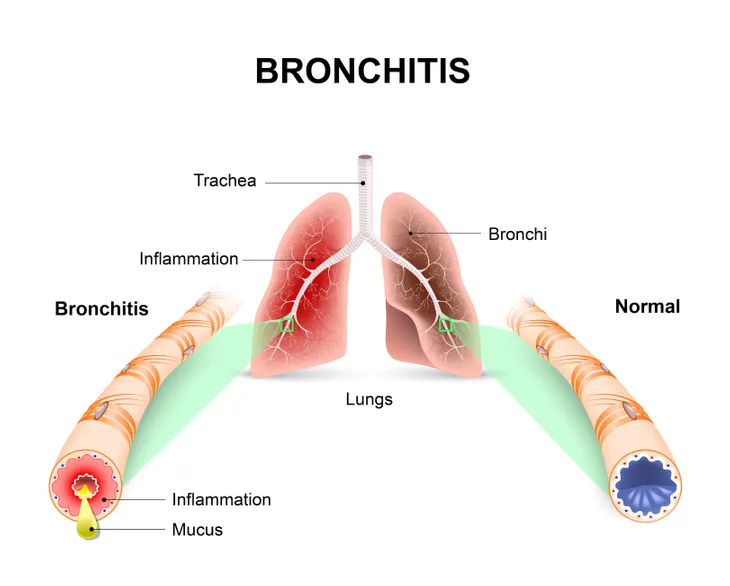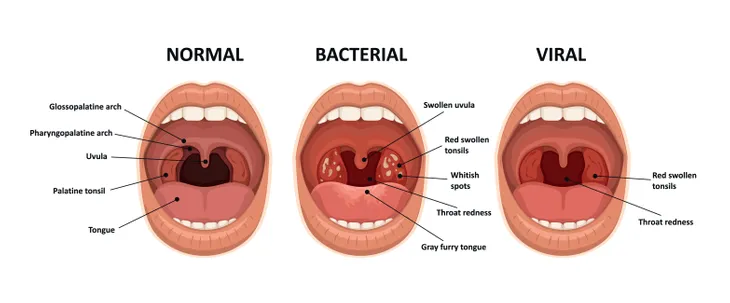The typical cold or bout of influenza will cause a fever, chills, achy muscles, stiff neck and sneezing and coughing for roughly about a week.
However, if your symptoms linger or worsen for even longer—particularly if you’re pregnant, a child, elderly, or if your immune system is compromised from an existing condition (i.e., heart disease or HIV)—you may be prone to one of these eight common complications from cold or flu…
Ear Infection
Children, particularly young children, are prone to developing ear infections after a bout with a cold or influenza. Typically, an ear infection is caused by the presence of streptococcus bacterium, which causes dull throbbing ear pain, discolored mucus and ear discharge, a low-grade fever, and disrupted sleeping and eating—symptoms that don’t tend to improve with antibiotics and require a follow up doctor’s visit.
Dehydration
There’s a valid reason why your doctor tells you to “drink lots of fluids” when you’re battling a cold or influenza. Sipping extra water, tea, and orange juice will keep you well hydrated, particularly if your flu has caused a fever, excessive perspiration, diarrhea, runny nose, or vomiting.
The body requires the extra fluids to replace those lost and in order to gain strength to recover. (Keep watch for these Top Signs of Dehydration).
Asthma Attack
A cold on top of dealing with a condition, like asthma, will take congestion and restricted breathing to dangerous levels. As the body aims to banish mucus from the body, it will encourage coughing, which in an asthma patient can result in an asthma attack.
If a cold or flu exacerbates your asthma symptoms (i.e., chest tightness, restricted breath, and dry cough), visit your doctor immediately.
Bronchitis
An innocent cold that sets up shop in the chest can quickly turn into acute bronchitis. However, there’s nothing “cute” about this extreme viral or bacterial chest infection, which causes a thick yellow mucus, chest congestion, wet cough, rattled or labored breathing, and shortness of breath.
Sinus Infection
The unmistakable feeling of a sinus infection reveals itself as throbbing pressure and pain in the sinus cavities and upper teeth—all due to infection and inflammation of the mucus membranes in the sinuses.
Acute sinusitis is common when a cold lingers for more than a week to 10 days. It’s almost always accompanied by a telltale headache, sinus pain, tooth pain, nasal congestion, and a thick yellowish, green nasal discharge. See your doctor for treatment of a sinus infection.
Tonsillitis
Even though a sore, chaffed throat is a familiar symptom of a cold. A severely raw and swollen throat, one that obstructs eating, drinking or swallowing can indicate something worse, like tonsillitis, which reoccurs commonly following a cold thanks to a type of nasty bacteria, known as streptococcus pyogenes.
Pneumonia
Bacterial pneumonia is the most common form of pneumonia among U.S. adults. It typically follows on the heels of a cold or flu infection that last longer than 3 weeks, and infects a part or lobe in the lung—resulting in a chronic, productive cough; shortness of breath; worsening cold symptoms (i.e., fever); and blood-stained phlegm.
Children under the age of 5, on the other hand, are more likely to contract viral pneumonia, due to a lingering respiratory virus.
Heart Problems
For most healthy individuals, heart issues are not a concern. However, if you suffer from an existing chronic health condition (i.e., diabetes or heart disease) a common flu or cold can put strain on the heart and cause a more serious health condition to occur—such as heart attack, myocarditis (inflammation of the heart), or pericarditis inflammation of the heart’s protective sac).











